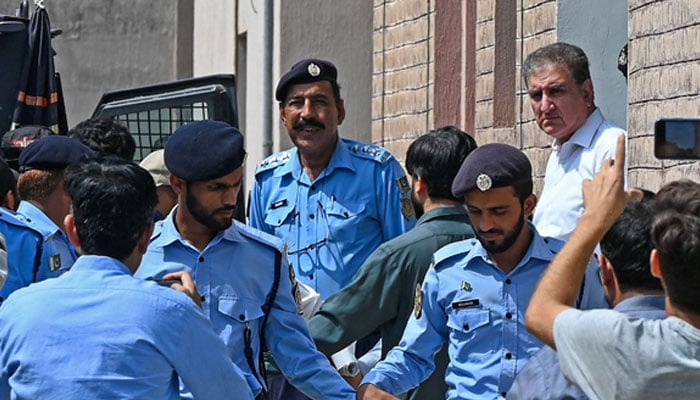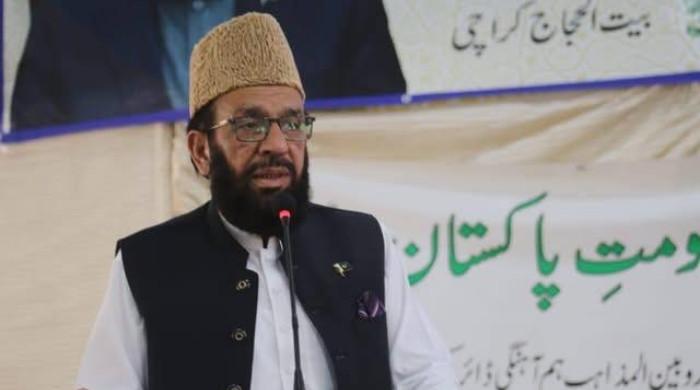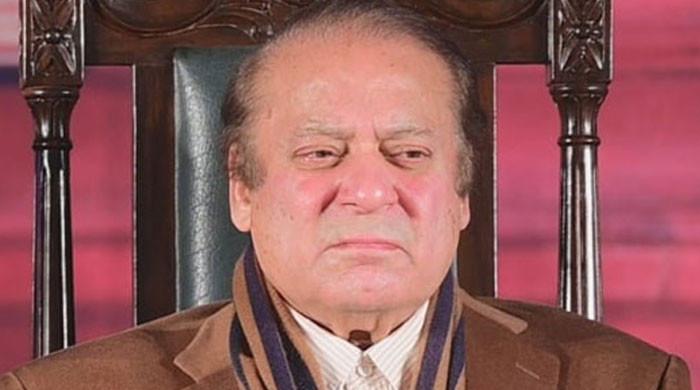'Qureshi told ministry not to share cipher with US diplomat'
Former additional secretary tells court that US chargé d’affaires at that time wanted to hand carry cipher waved by Imran Khan
January 26, 2024

- Former envoy to US says cipher episode a setback to Pak-US.
- Says he did not use the word threat or conspiracy in cipher.
- Khan had waved cipher before a public rally on March 27, 2022.
ISLAMABAD: Shah Mehmood Qureshi had stopped the Ministry of Foreign Affairs from sharing the cipher with the US chargé d’affaires who sought a copy of it after Imran Khan waved it before a public rally he held at the Parade Ground on March 27, 2022.
In their testimonies recorded before the trial court, former ambassador to the US, Asad Majid, declared the cipher episode a setback to Pak-US relationship as well as the adverse implication it carried for future diplomatic reporting culture whereas former additional secretary Faisal Niaz Tirmizi recalled how Washington reacted on the politicisation of a diplomatic cable.
Faisal, now Pakistan’s ambassador in the UAE, said the US chargé d’affaires at that time, Angella Aggler, sent him a WhatsApp message to ask that she wanted to hand carry a document which was waved by Imran Khan, then prime minister, alleging US interference in Pakistan’s internal affairs. Faisal was then additional secretary in MoFA dealing with America. “She further mentioned in her message that the above said message did not play well in DC,” reads his testimony before the court.
He then subsequently shared the US diplomat’s WhatsApp message with the foreign minister Shah Mehmood Qureshi and the foreign secretary Sohail Mahmood. “I immediately received a call from the-then foreign minister that the cipher message could not be shared with the US CdA.” This happened on March 27, 2023, the day Imran waved the cipher before the public.
Three days later, he was called in to brief the cabinet as the minister and secretary were out of Pakistan. Once that was done, Faisal was asked to deliver a demarche to the acting US chargé d’affaires, Richard Shelsire, on the US interference in Pakistan’s internal affairs and he did that. Faisal’s role was limited to receiving WhatsApp messages from the US Embassy, conveying it to the MoFA high-ups and later appearing before the cabinet meeting in the absence of his bosses.
As far as Asad Majeed is concerned, he told the trial court that the working lunch he hosted for Donald Lu continued for one and a half hours. Deputy head of the Pakistani mission was there, defence attaché and political councilor were also in attendance. Both sides were aware that it was minuted. “The conversation was communicated by me,” Asad said in his testimony, to Islamabad without using the word ‘threat’ or ‘conspiracy’. “I did not use the word threat or conspiracy. It was a political conclusion drawn by the leadership in Islamabad,” he said.
The communication was addressed to the foreign secretary, he further recorded, who shared it with all concerned consistent with his competence. The National Security Council and MoFA, both in their separate meetings, reached the conclusion that there was no conspiracy. “The cipher episode was a setback to Pakistan and US bilateral relationship and carried adverse implications for future diplomatic reporting,” he said in his statement.
Originally published in The News











